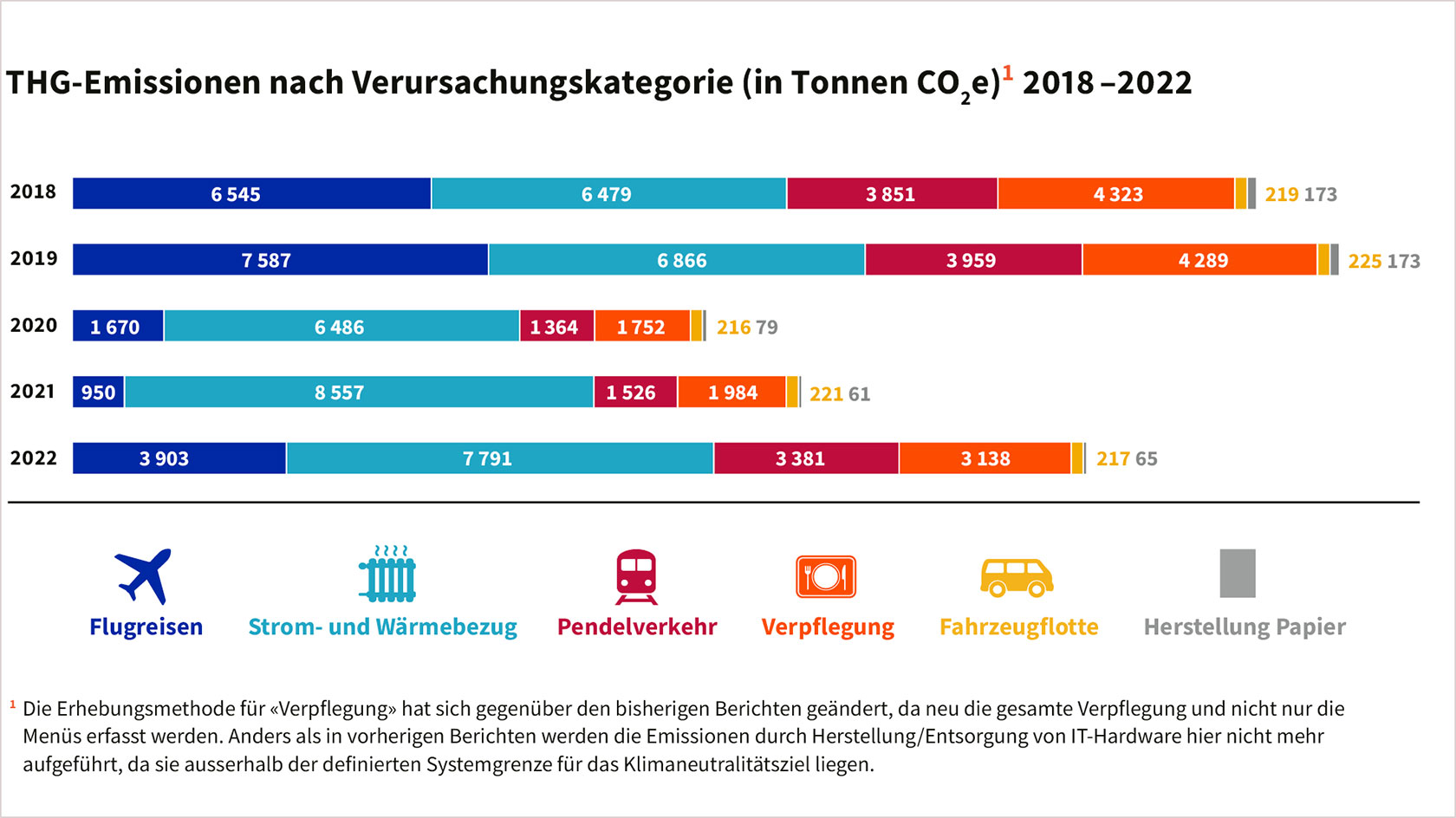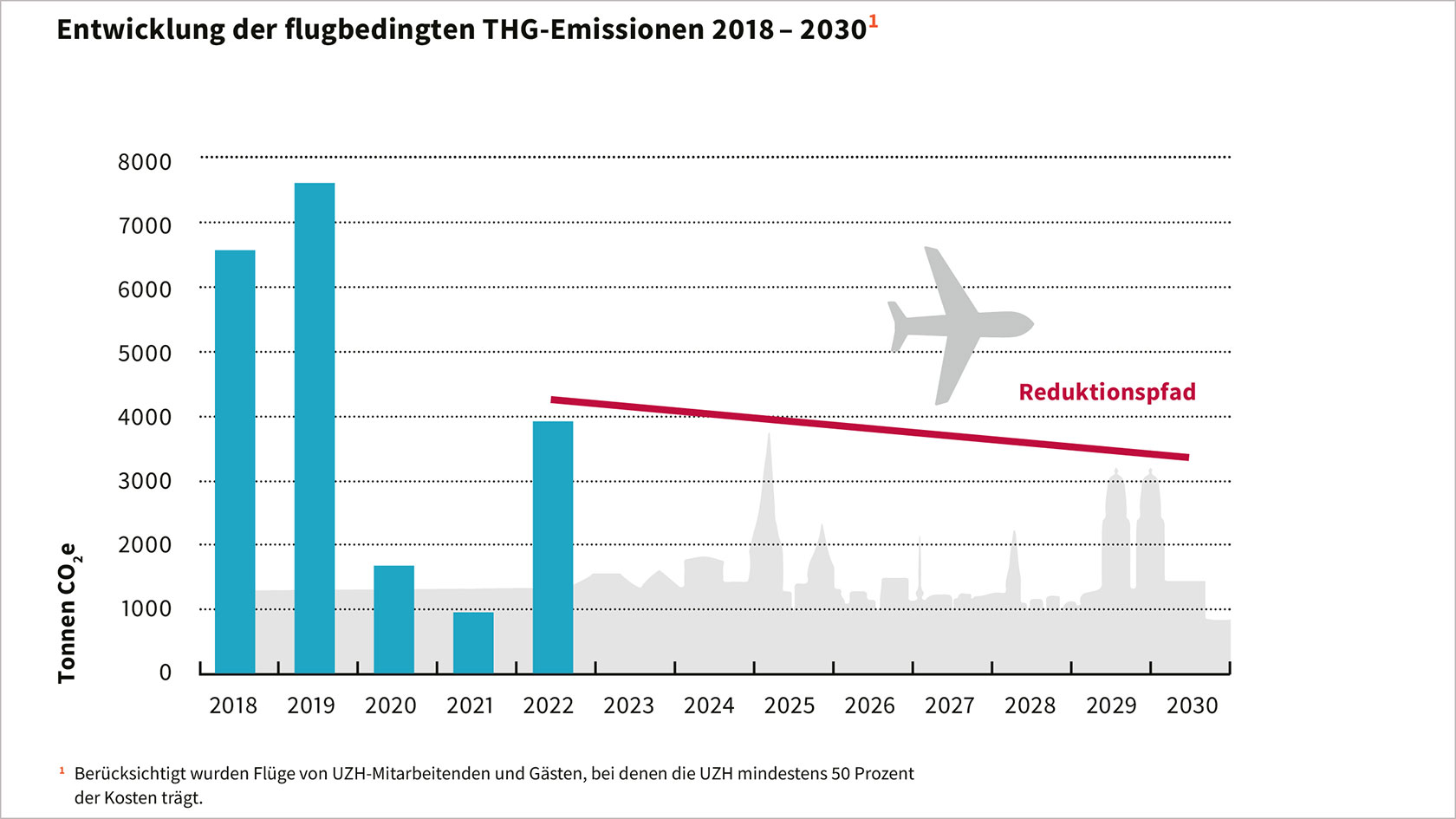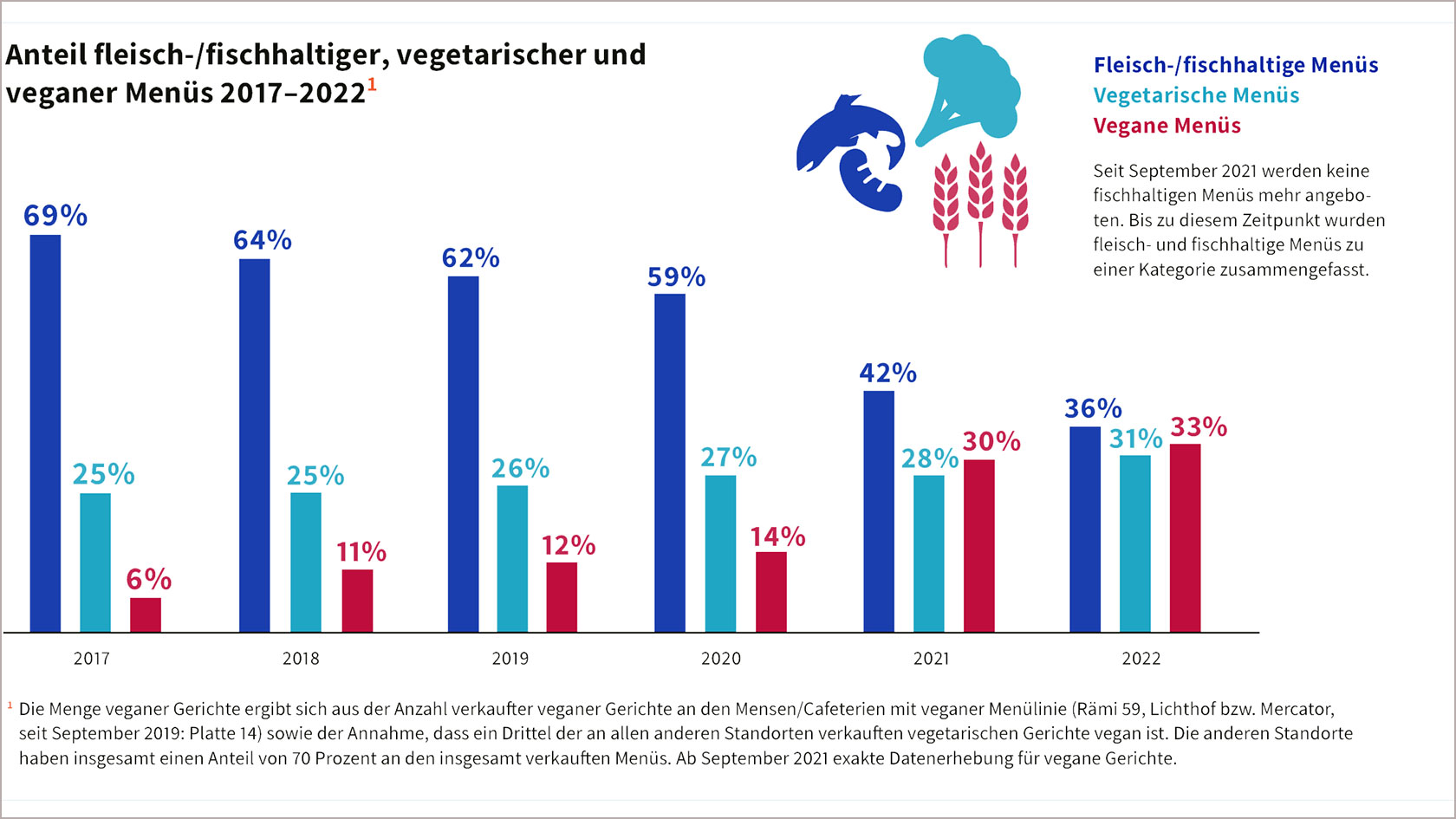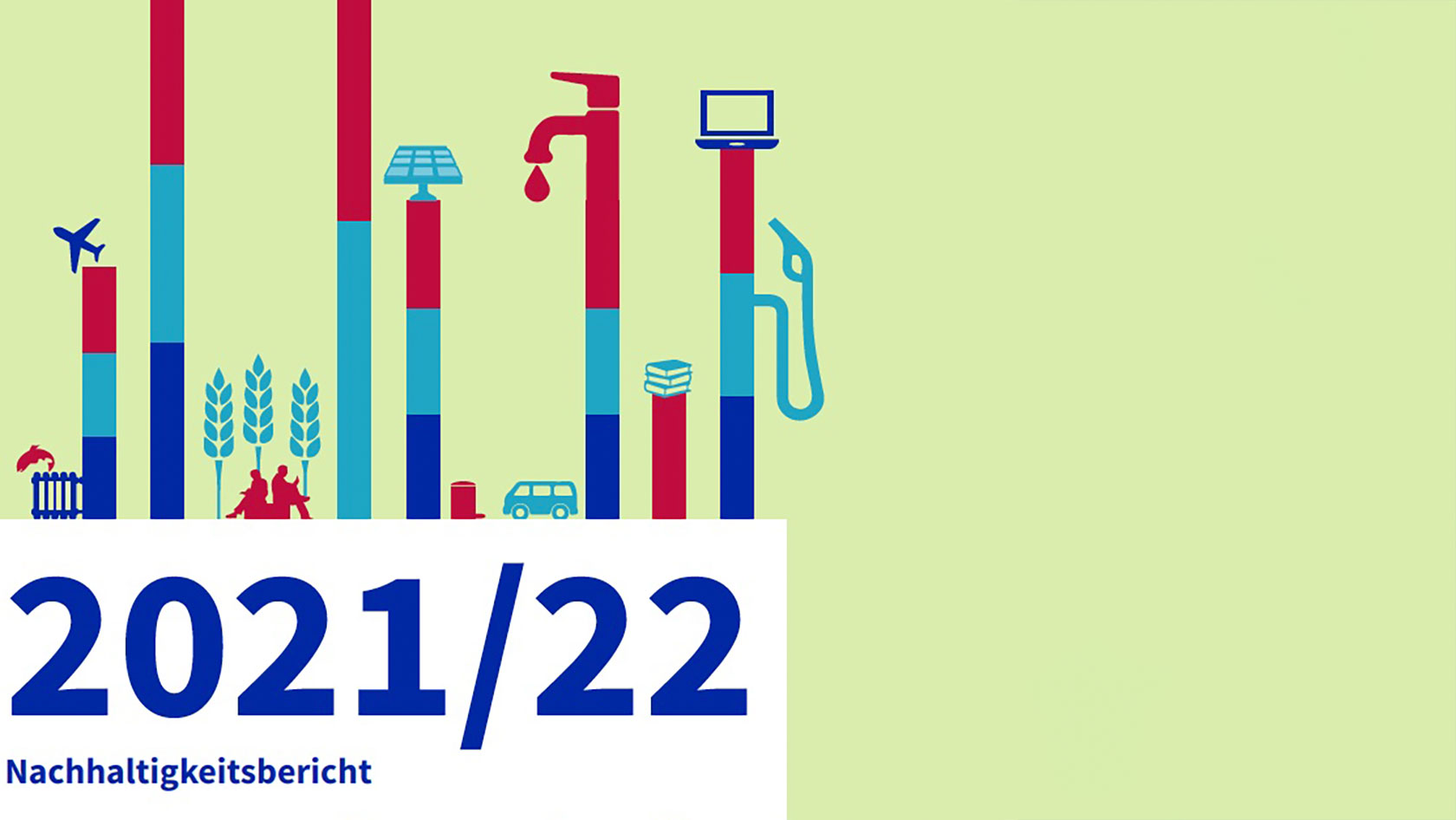On the Path to Climate Neutrality
Over the past two years, UZH has reduced its greenhouse gas emissions. Overall, the university has taken a number of effective measures to promote sustainable development, as shown in its latest Sustainability Report.
UZH wants to be climate-neutral by 2030. The Implementation Strategy for the Sustainability Policy outlines how the university aims to achieve this goal, with research and teaching priorities as well as exchanges with society playing major roles. At the same time, UZH is working on making university operations more sustainable.
Below is a selection of university activities in 2021 and 2022 that help UZH on its path to becoming climate neutral by 2030.
Fewer greenhouse gas emissions

- UZH was able to reduce its overall greenhouse gas emissions over the past two years. In 2022, emissions were 14% lower than in 2018, and in 2021, they were 38% lower – albeit with the 2021 decrease primarily attributable to the pandemic.
- UZH used an environmentally extended input-output life-cycle analysis to estimate its total greenhouse gas emissions. According to this analysis, the purchase of lab and research materials as well as construction activities are causing relevant emissions that have not previously been recorded. UZH aims to be climate neutral by 2035 in these areas, too.
Less flying

- Curbing air travel is one of the most effective ways of reducing greenhouse gas emissions. UZH’s goal was for flight-related greenhouse gas emissions in 2022 not to exceed 60% of pre-pandemic levels, and this goal was achieved. The faculties developed their own action plans to reduce air travel.
- The Faculty of Arts and Social Sciences, for example, introduced an internal levy on air travel, charging CHF 130 per tonne of CO2 emitted and a minimum of CHF 130 per flight. For every CHF 130 raised, CHF 100 is paid into a fund that the faculty can use to finance travel by train and bus instead, doubling the incentive effect.
- Researchers from the Digital Society Initiative also led by example and organized a European hub for the three-day Sunbelt conference that took place in Australia. By following the conference from this hub instead of traveling Down Under, European academics were able to avoid around 38 tonnes of greenhouse gas emissions.
Sustainable food

- UZH’s cafeterias and cafés have also increased their focus on sustainability since adopting the revised cafeteria strategy in 2021. Since then, the prices of vegetarian and vegan meals have dropped by around 15% compared to meat-based meals. The share of meals that contain meat decreased from 69% in 2017 to 36% in 2022.
- Last year, the ZVF (which runs the cafeterias) signed a cross-industry agreement to reduce food waste. The agreement is part of the action plan against food waste launched by the Swiss federal government.
- The Food2050 pilot project started on Irchel campus in 2022 with the aim of raising awareness of food sustainability.
Sustainable buildings and infrastructure
- UZH generally defines ambitious sustainability targets for new buildings, full restorations and changes of use – based on the canton of Zurich’s sustainability standards in construction (“Standard Nachhaltigkeit Hochbau”). The new building Y59 on Irchel campus (Functional Genomics Center) was awarded the gold label for lab buildings by the Swiss Sustainable Building Council.
- UZH joined the canton of Zurich’s tender for the procurement and disposal of furniture in 2022: furniture that can no longer be used is to be refurbished and reused in line with circular economy goals. In addition, UZH wants to use its furniture for as long as possible and runs a furniture exchange platform for disused office furniture.
Rooted in teaching
- Last year, UZH joined the Una Europa network, which has developed a sustainability and climate protection strategy. Una Europa will offer a Bachelor’s degree program in Sustainable Development, in which UZH will also be involved.
- With the new study program in Biodiversity, UZH will have a leading biodiversity sciences program in Switzerland and in Europe in its curriculum from the 2023 Fall Semester.
Joining the public discourse
- Numerous UZH researchers took part in various public discourses, acting as experts in political and economic decision-making processes – including the Intergovernmental Panel on Climate Change (IPCC), the UN Climate Change Conference (COP27), the Intergovernmental Science-Policy Platform on Biodiversity and Ecosystem Services (IPBES), the World Biodiversity Forum, and the climate and biodiversity exchange (“Trendwende Klima und Biodiversität”) between scientists and members of Swiss Parliament.
- UZH joined the international Blue Community network in 2022, advocating the recognition of the right to water as a human right and promoting the use of tap water instead of bottled water.
